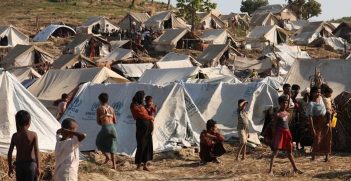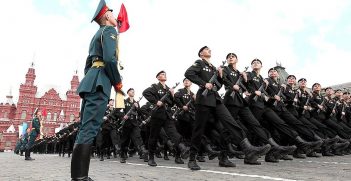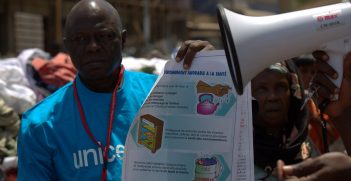Brazil's Political World Cup

Pessimistic stories in the run-up to the World Cup should not be confused with the assumption that the tournament will be a disaster.
As the World Cup approaches Brazilian president Dilma Rousseff has moved into overdrive with her Facebook feed. Although she turned down an invitation to meet the country’s team, there are daily pictures praising the members of the Seleção, as Brazil’s national team is known. She’s also quite emphatic about the benefits that have flowed to the country as part of the build up to the Cup. According to her news feed Brazil’s roads have been modernised, beautiful stadiums completed, billions invested in critical infrastructure throughout the country and the nations airports readied to receive the world’s soccer fans.
The catch is that Dilma is being a bit expansive with her understanding of the benefits flowing through to the majority of the people. Indeed even key infrastructure improvements are being questioned. The day that the revitalized Galeão/Tom Jobim International airport was officially declared ready for the tournament the lights went out in the terminal; just days from the start of the cup there is some question about whether or not the terminal in Belo Horizonte, site of a semi-final game, is ready for passengers or still a major construction site. On Facebook the running joke is that the upgrades to Guarulhos International Airport in São Paulo, the main port of entry to Brazil, might be ready by 2017. 1 June saw an extremely sarcastic celebration in the centre of São Paulo to mark the ‘opening’ of the bullet train to Rio de Janeiro Dilma had promised would be ready for the Cup. A route for the railways has yet to be agreed, much less ground broken on construction or contractors selected.
These pessimistic stories should not be confused with assumptions that the tournament will be a disaster. Brazilians know soccer and know how to put on major events like an international soccer tournament. But this tournament almost certainly will be accompanied by significant popular protests, particularly given that this is also a presidential election year.
The general sentiment is ably captured by one photo making the online rounds, which features a stadium crowd proudly waving the Brazilian flag with the following text printed across the image: “I am not against sport. I am not against the Seleção. I am against the opportunistic corruption in the realization of a Cup in a country that is crying for health, education, security and respect!”
Corruption
Suspicions of corruption in Brazil’s public sector are nothing new. Within FIFA these worries are rife and not helped by the recent revival of accusations that Qatar’s 2022 successful tournament hosting bid was bought or questions about corrupt referees. Others have been more pointed and direct about the entire business of international sporting events, most notably Dave Zirin in his carefully timed book Brazil’s Dance with the Devil: The World Cup, The Olympics, and the Fight for Democracy.
Although Zirin is at times a bit strident in his critiques and strained in his analysis what we can usefully draw from his text is the idea that something is slightly off in Brazilian democracy. As Zirin points out, mega events like the World Cup involve mass dislocations and forced removals of people. More than 15,000 families have been removed, some forcibly, to get Brazil ready for the 2014 tournament. In Rio de Janeiro the feared BOPE paramilitary police squad has been ‘pacifying’ the city’s favelas, particularly around areas that will be frequented by soccer and Olympic visitors. Although removal of the drug gangs has been widely hailed as a victory of citizen security, this does not mean that another set of illicit pressures are not being applied to the favela residents, particularly as the settlements clinging to the hills around Ipanema and Copacabana gentrify. (The dangers here are aptly captured in Jose Padilha’s disturbing film Tropa de Elite II: O Enimigo É Agorra Outro – Elite Squad II: The Enemy Within.)
But these are the easy stories, the simple empty net goals in a critical examination of how the World Cup is being conducted and what it means for Brazil. What has Brazilians incensed is that close to $20 billion dollars has been spent on two global sporting events while the country is unable to provide adequate health care, ensure that children learn to read in school, and guarantee that the country’s legion poor can get to work on affordable and reliable public transportation. Where, they ask, has the money gone and why did Lula decide to lead his country into these expensive projects?
The Nature of Brazilian Politics
Part of the answer can be found in the nature of Brazilian politics.
Election campaigns are expensive to run making fundraising key. A recent report in the leading newspaper Folha de São Paulo points out that in 2013 only 0.003% of donations to the ruling PT (Partido dos Trabalhadores – Workers Party) came from individual citizens. In part this is because the electoral system in Brazil artificially distances the electorate from members of congress. Rather than the sort of single-member district familiar to Australians, Brazilian politicians are selected from party lists in proportion to the number of votes received within an electoral area. There is consequently no direct link between an individual citizen and a specific senator or federal deputy. More significantly this system makes it more important for a politician to maintain their party connections so they are high up the list, not create a strong individual support base with the electorate.
Political parties consequently become extremely dependent on corporate donations. In the case of Dilma’s PT this is deeply significant because 75% of the financing the party received in 2013 – BRZ$60 million – came from Brazil’s major construction firms, collectively referred to as the empreiteiras. For the Brazilians on the streets this provides part of the answer to where the money for the World Cup has gone. Stadiums are expensive, as are all of the five star condominium complexes being built in ‘revitalised’ areas around the venues. All of these projects are being built by the empreiteiras, some of whom will also manage the condominiums and infrastructure connections after the Cup.
In a refrain that echoes post-budget criticisms in Australia, the real concern amongst the population in Brazil is that the politicians are now listening nearly exclusively to their financiers not the electorate. Lula himself is not helping the sense that the PT is in the pocket of the empreiteiras – he has been travelling around Africa and Central America drumming up more infrastructure business for empreiteira firms like Camargo Corrêa, Odebrecht, Andrade Gutierrez and Queiroz Galvão.
The confluence of the World Cup and a presidential election has consequently offered groups who feel disenfranchised a brief window to have their demands met. Threats and actual strikes are rolling across the country in sectors as widely separate as the municipal police (the one’s who do the paperwork), airport workers, urban transit staff and more. The middle class is also out in force, decrying the lack of adequate schools, safe hospitals and reliable public transit. While the World Cup will likely be a success even if Brazil loses in the later stages of the tournament, Dilma’s October reelection seems questionable.
Or does it?
Almost completely absent from this report has been the voice of the country’s poor, the faithful who do not question Lula, the PT or their latest leader, Dilma. While the middle classes head to the street to protest, the poor are sitting on buses for the very long ride home from work to their families on the outskirts of the major cities. Marching in the streets is simply too expensive for these tired workers. From their point of view it is better to stick with the devil they know. Like the PT, financing of the opposition PSDB party is dominated by donations from the empreiteiras to the tune of 86% of total receipts in 2013. Unlike the PT the PSDB does not have a storied history of working with the nation’s poor.
For the poor in Brazil what matters is results and personal loyalty. Lula, icon of the poor, remains Dilma’s most vocal fan, which will guarantee her a sizeable minority of votes. When combined with the very real poverty alleviation successes under consecutive PT presidencies – over thirty million people have been pulled out of dire poverty over the last decade – a conservative estimate is that Dilma has a hardwired 35% of votes in the bag. With the opposition candidates failing to provide a compelling counter-narrative, the political machine of the PT seems indomitable irrespective of World Cup fireworks on the fields and streets of Brazil. Despite the pictures which may appear over the next month, it looks like Dilma’s victory this October is far more certain that the Seleção’s in July.
Sean W Burges is author of the book Brazilian Foreign Policy After the Cold War and over twenty scholarly articles on Brazil, development and inter-American affairs. He is based at the Australian National University where he is a lecturer in international relations and senior associate of the Australian National Centre for Latin American Studies. Burges is also a senior research fellow with the Washington, DC-based Council on Hemispheric Affairs.





